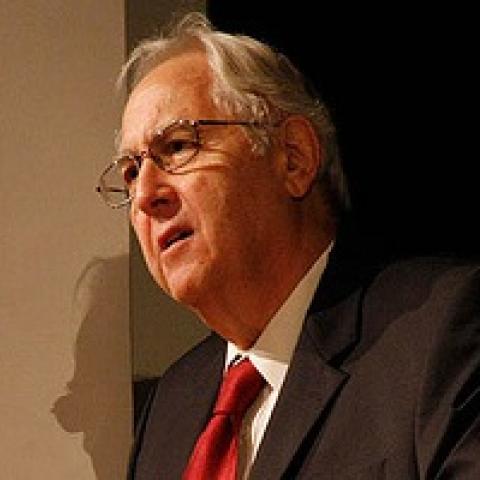The Little Red School House touts itself as a bastion of "progressive education." Even today the website of the private pre-K-12 school in Manhattan's Greenwich Village neighborhood advertises its commitment to "social justice." But back when I attended--I graduated in 1955 from the high school, which is officially named for its founder, the activist and social worker Elisabeth Irwin--"progressive education" simply meant an indoctrination in leftist ideology. In 1945, the senior class voted to have the school teach recent Soviet history instead of American history, since, as the school's 75th anniversary commemorative book explains, the members of the class "thought Russia was great and Communism a noble experiment."
That commemorative book was coedited by Dina Hampton, a journalist and alumna of the school (class of 1977). Now in Little Red: Three Passionate Lives Through the Sixties and Beyond, Ms. Hampton profiles three prominent graduates of Elisabeth Irwin: the Communist academic and Black Panther activist Angela Davis; the filmmaker and Students for a Democratic Society member Tom Hurwitz; and Elliott Abrams, an assistant secretary of state in the Reagan administration and special adviser to President George W. Bush. All three graduated from the school in the early 1960s, and their lives trace profoundly different reactions to the political turmoil of that decade.
Judging by her book, it appears that Ms. Hampton still possesses the political outlook we were marinated in at Elisabeth Irwin—a holier-than-thou leftism that our teachers assumed brought both political clarity and moral superiority. Thus the book's heroine is Ms. Davis, a devout believer in the "science of Marxism-Leninism," as she referred to in the summer of 1972, when speaking to a crowd at Moscow's airport. Mr. Hurwitz, too, is depicted here as a true man of the left and hence a moral exemplar.
Mr. Abrams is simply the evil counterpart, a man who betrayed his school and who, even while still a student at Little Red, dared to ask its librarian why the school had subscriptions only to the Nation and I.F. Stone's Weekly. "Could the school not achieve some balance in the publications it displayed," the young man wondered, by stocking "a magazine like the National Review?" "The culture is dominated by right-wing politics," was the response. "We don't need to get more of it in the school."
When Ms. Hampton isn't celebrating the school's wacky politics, she tries to soften them. The school's teachers "encouraged its charges to scrutinize, question and resist the inequities of American society," she writes, and students were "imbued from their earliest years with the belief that they could change the world." But as I recall, its teachers believed that the only way to better the lot of mankind was through leftist activism and Marxist revolution. And as Ms. Hampton herself reports, it was the school's longtime history teacher Harold Kirshner, for instance, who "effected a life-altering transformation in Davis," by assigning her to read Marx and Engels.
Ms. Davis is treated here as a virtual saint. From her activities in the Black Panther Party to her membership in the American Communist Party, her every political choice is heralded. "By joining a black Communist group within a larger national group," Ms. Hampton gushes, "she placed the struggle of African Americans to achieve equality in America in the context of people of all races working to overthrow oppressive regimes."
Readers are barely told about the thuggish behavior of the Panthers. Ms. Hampton, for example, omits the fact that, in 1969, the Panthers tortured and murdered a member suspected of being an informant. As for Ms. Davis's commitment to freedom, there isn't a word about her full-throated support of the Soviet invasion of Czechoslovakia in 1968, nor about the open letter to her by Czech dissident Jeri Pelikan, written in 1972, which chastised her for refusing to defend political prisoners in his country who opposed the invasion of a sovereign nation by the U.S.S.R. "Try to help them," he pleaded, "so they can defend themselves against their accusers as you have been able to do in your country." Ms. Davis, a firm defender of Stalinism, didn't respond but had a Communist friend tell the press that Ms. Davis believed the critics of the Czech regime were undermining socialism and undeserving of support.
By contrast, when Ms. Hampton discusses Mr. Abrams, she carefully draws out every attack made on him during the Reagan years. He is castigated for Iran-Contra, for supporting aid to the moderate Duarte government in El Salvador in the early 1980s, for opposing the Sandinistas in Nicaragua, and on and on. Mr. Abrams got away with these sins against the international left, Ms. Hampton says, because of his "charm." She can't understand how the Council on Foreign Relations--an organization "whose members include news anchor Brian Williams, contributing editor for Time magazine Fareed Zakaria and actress and activist Angelina Jolie"--can have him as a fellow. She approvingly quotes Little Red classmates furious that one of the school's commemorative publications included an appraisal by Mr. Abrams of his years there.
The days are long gone when leftist educators and activists would create their own schools to propagate Communist ideology in places like Greenwich Village. But as Dina Hampton's book demonstrates, the old dogmatism and uncharitable spirit of those agitators lives on.



















